Is there such a thing as an anti-inflammatory diet? The short answer: not really, but there are diet and lifestyle modifications which may reduce the risk of inflammation.
No single food or food group will magically cure inflammation – I wish it were that easy! Incorporating a variety of different foods with anti-inflammatory properties can help reduce overall inflammation.
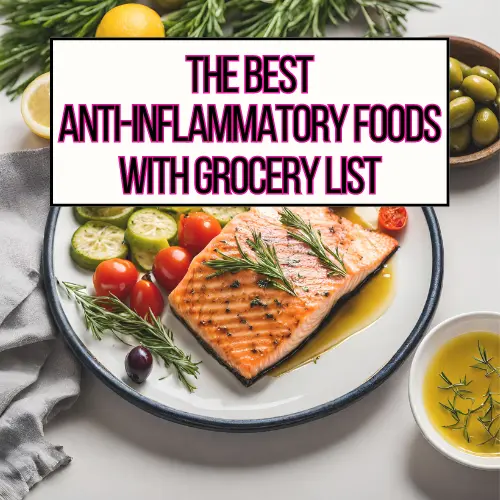
Let’s discuss the best anti-inflammatory foods to add to your grocery list and why!
Spoiler alert: you probably won’t be surprised by the majority of these foods.
Why Is It Important to Consume More Foods with Anti-Inflammatory Properties?
Inflammation is a normal and vital response to injury. However, it is usually categorized into two types: acute and chronic.
If our body is in a chronic inflammatory state, it can significantly contribute to the development of many diseases such as cancer, cardiovascular disease and neurocognitive decline.
One of the most important aspects of an “anti-inflammatory” diet is the stabilization of insulin and reduced intake of omega-6 fatty acids. This translates into consuming more anti-inflammatory foods and less pro-inflammatory foods.
Processed foods, high-fat dairy products, red meat high in saturated fat and refined sugars are thought to be pro-inflammatory.
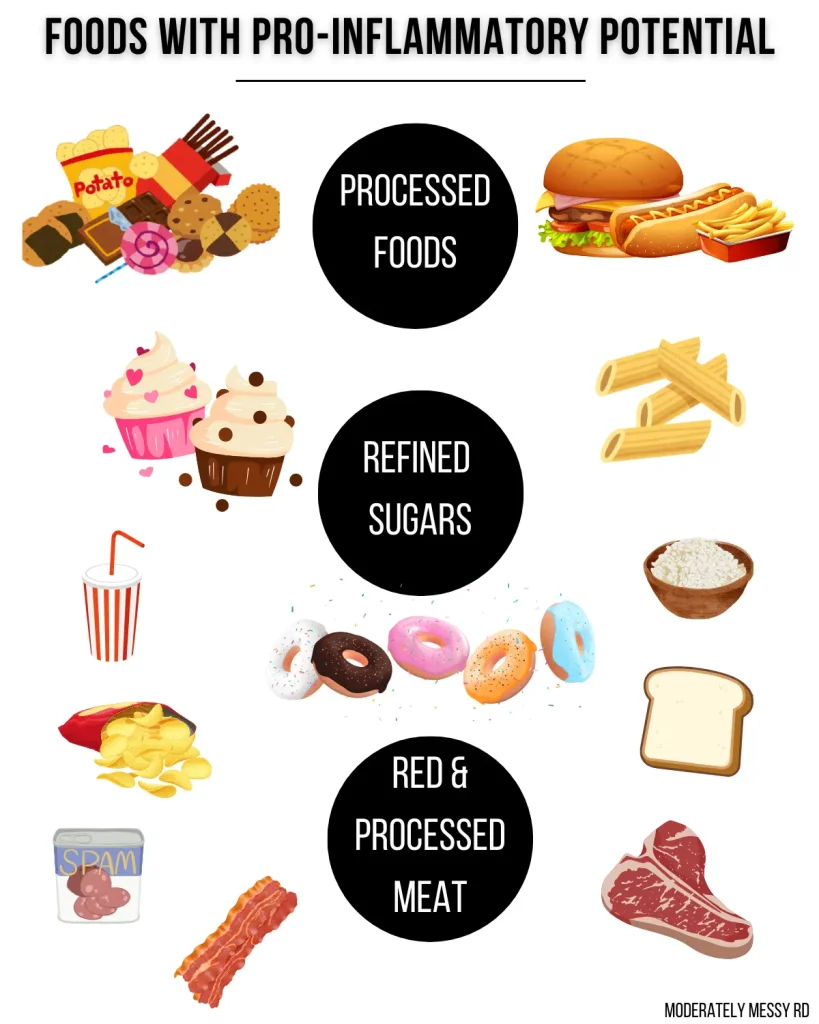
Mediterranean Diet and DASH Diet
Both the Mediterranean and DASH diets are popular examples of what is considered an “anti-inflammatory diet”.
A recent review of available studies found that a more plant-based diet with a variety of vegetables, fruits, whole grains, and a moderate consumption of legumes and fish has been associated with a greater anti-inflammatory potential.
Both of these diets follow similar approaches, and therefore, have the potential to fight inflammation!
Multiple studies have confirmed that those who adhere to a Mediterranean diet have lower levels of anti-inflammatory biomarkers, like CRP and interleukin-6.
Even further, following both the Mediterranean and DASH diets lower the risk of cognitive decline (even Alzheimer’s disease) – among many other benefits!
Anti-Inflammatory Grocery List
I don’t like to talk in absolutes in regards to nutrition (unless there is very strong evidence), but there are foods that have been found to be more inflammatory than others. What it comes down to is finding the right balance of foods that help with inflammation and limiting those that are proinflammatory.
Here are some of the best anti-inflammatory foods – but as always, further research is needed to really understand their full potential to reduce inflammation.
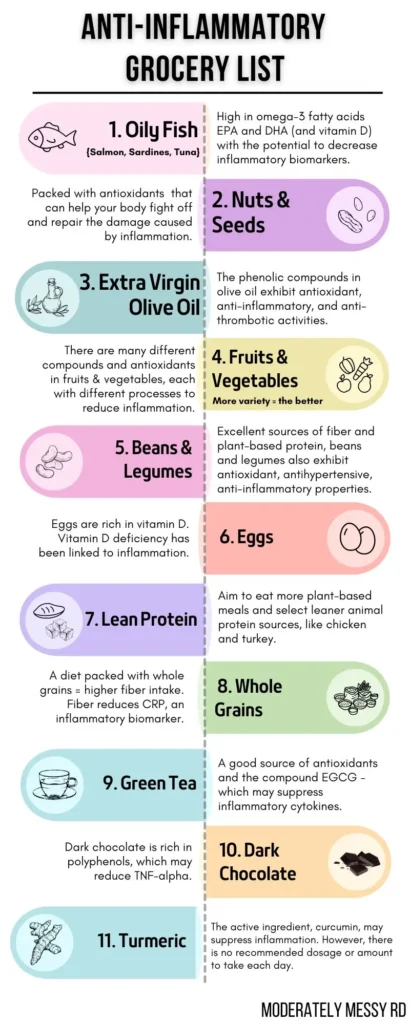
1. Oily Fish
Oily fish sources like salmon, tuna, and sardines are one of the best (and only) food sources of omega-3 fatty acids EPA and DHA.
Some studies have shown that those who consume salmon or take fish oil supplements have a decrease of inflammatory biomarkers.
Another benefit of salmon? The potential to slow cognitive decline and decreased risk of Alzheimer’s and dementia (why it’s often prioritized on the Mediterranean diet).
For meal ideas, read 30+ Mediterranean Diet Salmon Recipes.
2. Nuts and Seeds
All nuts are packed with antioxidants that can help your body fight off and repair the damage caused by inflammation. They’re good sources of fiber, calcium, and vitamin E as well.
Seeds like flax, chia, and hemp are rich in the omega-3 fatty acid ALA.
Research has widely shown that consuming 5-6 ounces of nuts and seeds per week can lead to a longer, healthier life! Eat them as a snack, or incorporate them into recipes. I talk all about this in my post The Best Ways to Use Chia Seeds, Flaxseeds and Hemp.
3. Healthy Fats
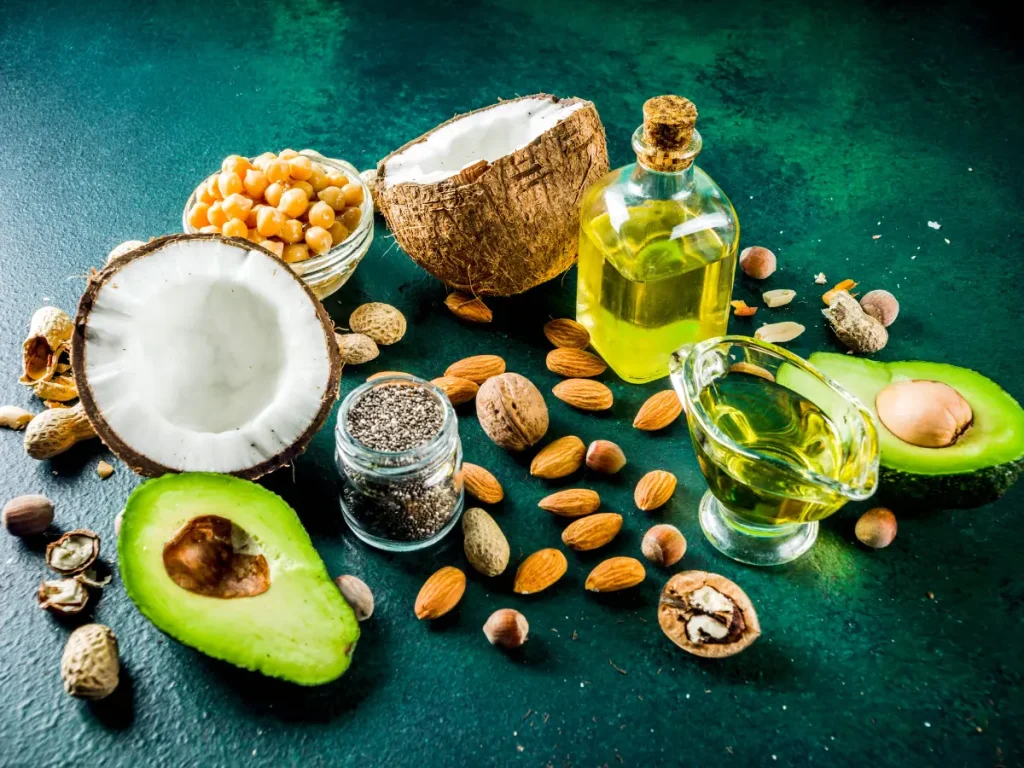
Extra-virgin olive oil is a staple on the Mediterranean diet. It’s high in healthy fats and phenolic compounds that are known to be anti-inflammatory.
Avocado oil also has a lipid profile that is ideal when trying to consume more anti-inflammatory foods!
4. Fruits and Vegetables
There are many different compounds and antioxidants in various fruits and vegetables, each with different processes to reduce inflammation. Therefore, it is best to consume a variety!
For example, dark, leafy green vegetables like spinach, swiss chard, kale and broccoli are rich sources of vitamin E, known to have anti-inflammatory properties. Berries contain anthocyanins, and tomatoes lycopene.
5. Beans and Legumes
Excellent sources of fiber and plant-based protein, beans and legumes also exhibit antioxidant, antihypertensive, anti-inflammatory properties.
They’re front and center on the Mediterranean diet – and for good reason!
7. Eggs
Several studies have found that there may be a link between vitamin D deficiency and inflammation. Eggs are a good source of vitamin D, so therefore, a grocery staple for fighting inflammation.
For more information on vitamin D, read: Increasing Vitamin D Through Foods with Recipes.
8. Lean Protein
The popularity of plant-based diets is on the rise due to the potential to reduce a number of chronic diseases. Aim to eat more plant-based meals and select leaner animal protein sources, like chicken, fish and turkey.
One of the reasons the Mediterranean diet is the gold standard for anti-inflammatory properties is the focus on less meat – specifically red meat.
9. Whole Grains
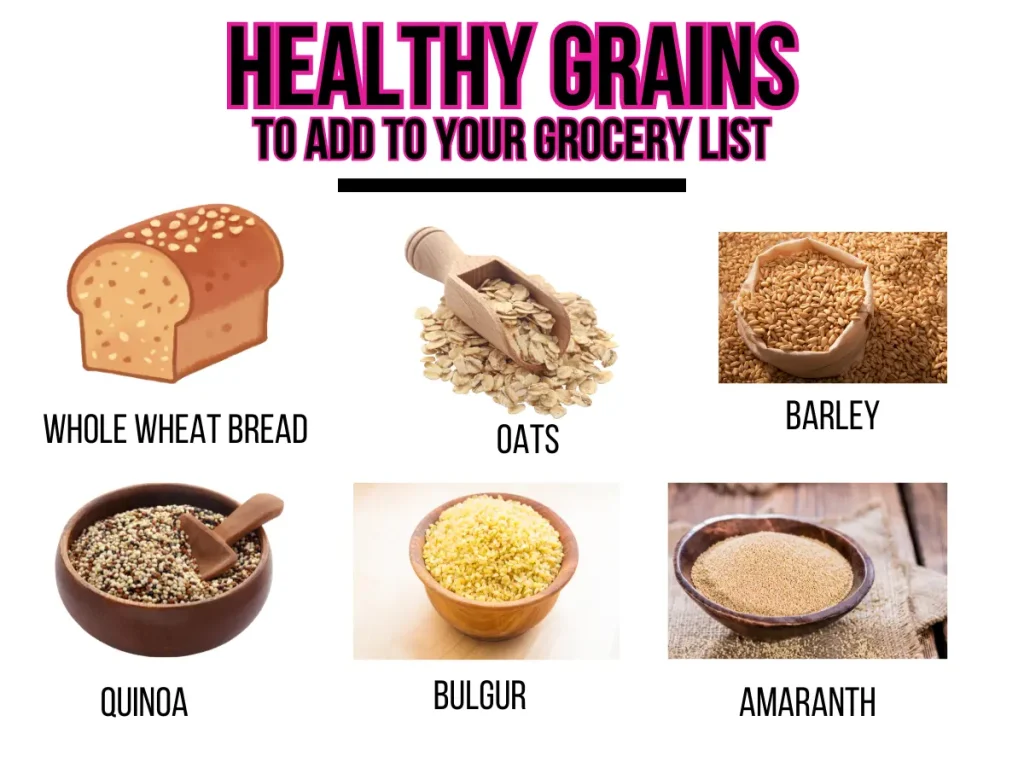
Whole grains typically have more fiber than refined grains. A diet higher in fiber has numerous benefits – one of them being reduced C-reactive protein (an inflammatory biomarker).
When reading food labels, one of the first ingredients should be “whole wheat”. Some of the most nutritious whole grains are quinoa, farro, barley, and rolled oats!
If you are sensitive to gluten (see below), sorghum, quinoa, buckwheat, pats, and amaranth are great, high fiber options!
10. Green Tea
Green tea is good source of antioxidants, as well as a compound called epigallocatechin-3-gallate (EGCG). Some studies have indicated that green tea and EGCG suppresses inflammatory cytokines and inflammation-related enzymes.
11. Turmeric
The active ingredient in turmeric is a polyphenol called curcumin. Research has suggested that this compound can suppress inflammation through many different mechanisms.
The earthy flavor is great for Thai and Asian dishes, as well as soups. You can also make turmeric tea. The problem with turmeric is there is no recommended dosage or amount to take each day. More research is needed!
Cinnamon, garlic, and ginger are also thought to have anti-inflammatory properties.
Dark Chocolate
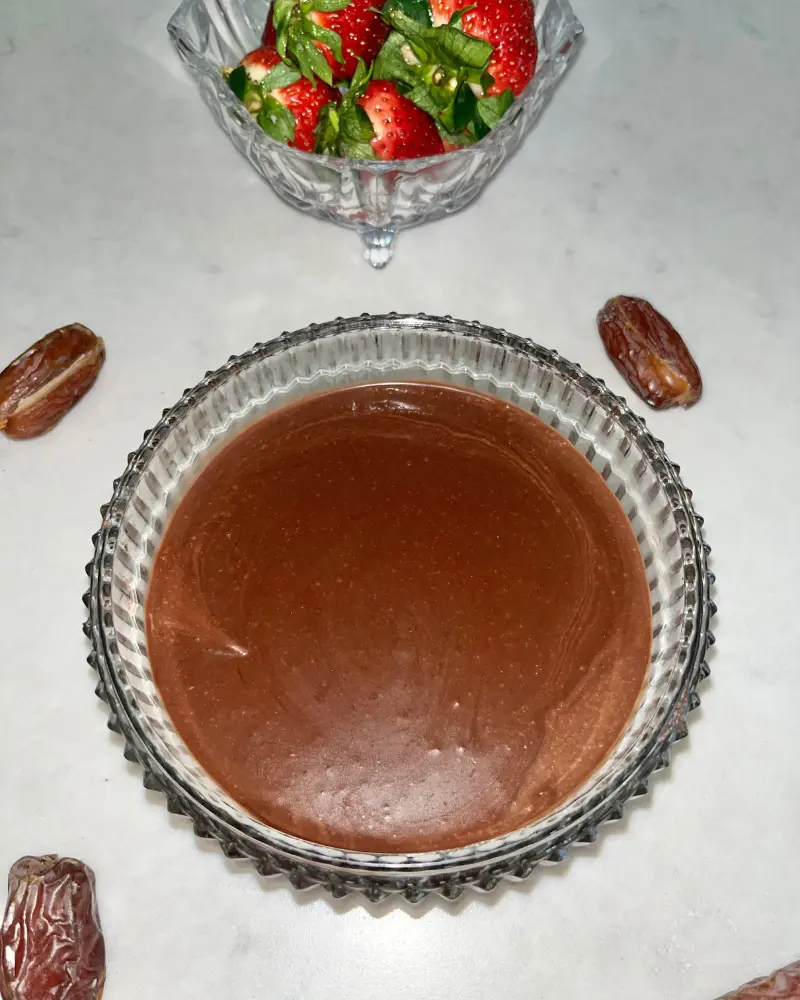
Foods rich in polyphenols, like dark chocolate, may help mitigate inflammation by reducing plasma levels of TNF-α – a cytokine produced with acute inflammation.
Try my dark chocolate date sauce or this strawberry peanut butter bark for some nutritious snack ideas!
Mediterranean Diet Recipes:
— Mediterranean Grain Bowl
— Mediterranean Diet Pizza
— Chia Breakfast Bowl
Is Gluten Inflammatory?
It is true that gluten sensitivity has become more common, especially with those with gastrointestinal disorders. However, it is not necessary to restrict gluten unless an allergy or intolerance has been observed.
In fact, a recent study found that those following a gluten-free diet had worsened diet quality and increased inflammatory potential.
So you see, if following a gluten-free diet decreases your fiber consumption and leads you to eat more processed foods it can actually have the opposite effect when it comes to inflammation.
People with celiac disease experience an immune reaction triggered by consuming gluten which causes inflammation and damage to their intestines. This would result from any food allergy – like eggs or peanuts.
A Short Summary
What it really comes down to is consistently consuming meals high in fruits, vegetables, whole grains, healthy fats, and oily fish. Processed foods are just fine – but in moderation!
For those wanting to follow a “diet” to fight inflammation, the Mediterranean or DASH diets are backed up by a lot of research.
If you feel like you have a gluten sensitivity, it’s a good idea to eliminate it for 4-5 weeks and trial re-introduction to see if is a trigger for your symptoms.
However, if you do not see a difference, a gluten-free diet may be challenging to adhere to and you’ll be missing out on additional fiber and nutrients often found in foods that contain gluten.
